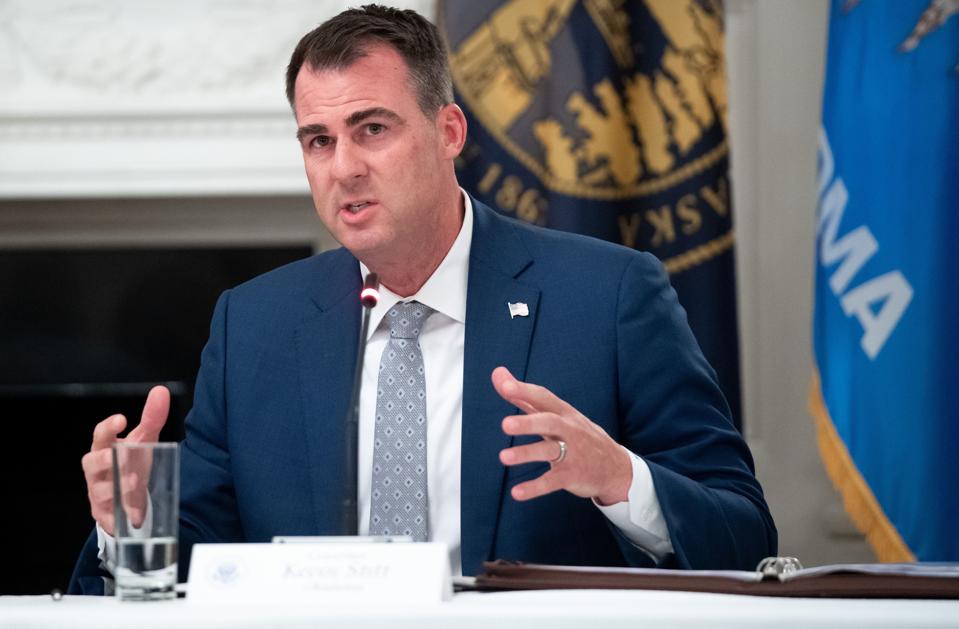Full piece in Forbes
By Patrick Gleason
Illinois Governor J.B. Pritzker (D) signed Senate 328 last week, making it easier to sue companies that do business in Illinois but are based elsewhere. The new law requires “companies registered to do business in Illinois to consent to what is known as the state’s ‘general jurisdiction,’” notes Joe Tabor, director of legal research as the Illinois Policy Institute, adding that SB 328’s enactment will allow businesses to be sued in Illinois courts “even if the plaintiffs were not from Illinois and even if the harm did not occur in the state.”
…
In April, Georgia Governor Brian Kemp (R-Ga.) signed into law Senate Bills 68 and 69, a two-bill tort reform package that aims to bring down insurance rates and other business costs. The reforms enacted in Georgia focused on “phantom” damage awards and “jury anchoring.”
“‘Phantom’ damages are awards based on inflated medical bill amounts that were never actually paid — Georgia courts often base awards on these billed amounts rather than real payments,” notes the American Tort Reform Association (ATRA). “Jury anchoring is a practice in which lawyers suggest an unreasonably large award before a jury with that number becoming an ‘anchor’ point in jurors’ minds.
The tort reform package enacted in Georgia this spring also addresses liability issues that were saddling employers with significant litigation costs. Protecting American Consumers Together, an advocacy group dedicated to ending lawsuit abuse that was the only outside group to run television ads in support of Governor Kemp’s tort reform package, praised its enactment, saying that SB 68 and 69 will “make Georgia more affordable for families and small businesses while fixing a broken system to ensure consumers and victims can still seek the justice they deserve.”
…
One month after Governor Kemp and Georgia lawmakers enacted tort reform, Governor Kevin Stitt (R) and Oklahoma state legislators followed suit. At the end of May, Governor Stitt signed Senate Bill 453, which sets a $500,000 maximum award for non-economic damages related to physical injuries, and a $1 million cap for permanent mental injury.
Not only did Governor Stitt and Kemp both enact tort reform this year, they also both approved further income tax relief. The same week that Governor Stitt signed tort reform into law, he also signed legislation cutting Oklahoma’s personal income tax from 4.75% to 4.5%. Meanwhile in Georgia, Governor Brian Kemp signed into law a retroactive income tax cut that will take the rate in 2025 from 5.39% to 5.19%, then down to 5.09% in 2026, followed by another cut to 4.99% in 2027.
The enactment of tort reform in Georgia has been noticed in competing states. As Texans for Lawsuit Reform (TLR) noted shortly after the passage of tort reform in Georgia, many are “urging Texas legislators to pass similar reforms through SB 30,” legislation introduced by Lt. Governor Dan Patrick (R). SB 30 aimed “to prevent abusive lawsuit practices by many plaintiff lawyers that wrongfully inflate medical damages in personal injury lawsuits,” explains TLR.
…
Florida’s Tort Reform Success Story
“For 2025, Florida’s top five auto writer insurance groups are indicating an average -6.5% rate change, down from an average +4.3% in 2024 and a staggering average of +31.7% in 2023,” noted a July 29 statement from the Florida Office of Insurance. “The top five auto writer insurance groups amount to 78% of Florida’s auto market. In addition to optimistic auto rate changes, Florida is reporting a remarkable reduction in the personal auto liability loss ratio, down to a 53.3% on average in 2024—the lowest in the nation.”
“Thanks to Governor DeSantis and recent strong legislative reforms, Florida’s auto insurance market is turning the corner,” said Blaise Ingoglia, Florida’s Chief Financial Officer. “When the top insurers in the state are cutting rates by up to 11.5%, that’s not just a statistic, it’s money back in the pockets of Florida residents.”
Tort Reform Opponents Helped Finance Texas Walkout
It’s not lost on many in the Texas capitol that the same interests who blocked tort reform from passing during the regular session earlier this year also helped finance Texas Democrats’ latest quorum-blocking walkout. As the Texas Voice recently reported, “campaign finance records show that one of the leading groups working to thwart Republican redistricting efforts has received significant funding from George Soros and personal injury trial lawyers.”
…
Aside from Texas, tort reform also came up short this year in South Carolina. Despite those setbacks, proponents of tort reform notched significant legislative victories in 2025, which will likely be emulated by lawmakers in other state capitals in the coming year. The results from Florida, meanwhile, will likely encourage tort reform proponents in Texas, South Carolina, and elsewhere to persist, as will the actual experiences of employers. Trial lawyers can continue to bring legislators campaign checks, but lawmakers in Austin, Columbia, and other state capitals will continue to field employer complaints about rising insurance rates and litigation costs.

